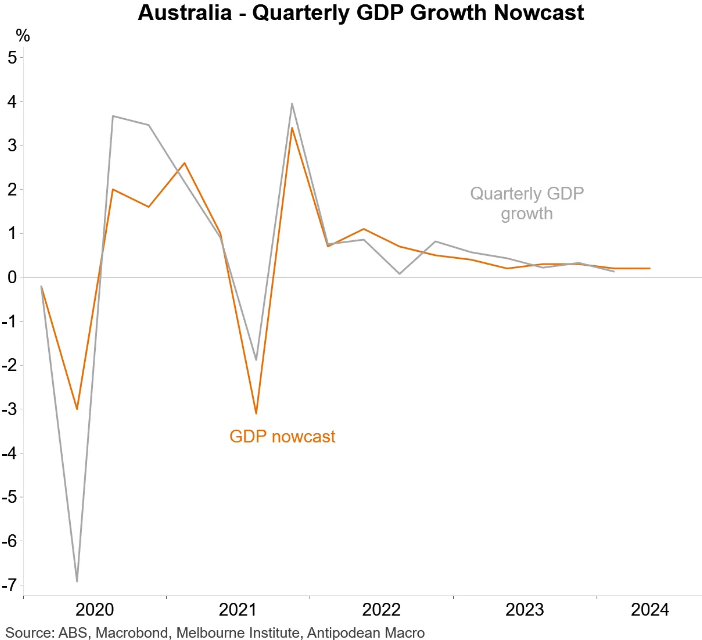The latest GDP nowcast from the Melbourne Institute, plotted below by Justin Fabo at Antipodean Macro, suggests that Australia’s GDP growth remained at just 0.2% in June quarter:

Given population growth of around 0.5%, this suggests that Australia will record its sixth consecutive decline in per capita GDP when the Q2 national accounts are released in early September.
The per capita recession is being felt across consumer-facing industries.
The Australian Securities and Investments Commission (ASIC) recorded a 40% jump in corporate collapses to 11,049 in 2023-24, surpassing the previous record high of 10,757 in 2011-12.
Kathy Sozou, McGrathNicol partner and vice president of the Australian Restructuring Insolvency and Turnaround Association, warned that “we will see the current trend continue over the next 12 months as economic pressures impact consumer and household sentiment”.
Ashurst restructuring and insolvency partner Michael Sloan added that “the usual suspects of inflation, interest rates and sentiment are influencing insolvencies”.
Meanwhile, the number of repossessed vehicles on sale has continued to climb.
Auction site Pickles reported a 13% increase in repossessed cars coming up for auction in the last six months.
In the second quarter of 2024 (April to June), the number of repossessed cars increased by 11% over the first three months of 2024.
Pickles observed in their second quarter report that the “significant rate” at which repossessed cars were sent to auction was due to two key factors:
“Pickles considers the two key contributing factors behind this growth to be ongoing cost-of-living pressures – relating to high CPI inflation and interest rates – along with owners’ ability to refinance diminishing as vehicle values generally decline, contrary to the booming used (car) values prior to the second quarter of 2022”.
The situation would obviously darken in the event that Australia’s unemployment rate shot up and/or there was a sharp correction in home prices.
The RBA needs to tread carefully on interest rates.
A rate hike at next month’s monetary policy meeting could easily push the economy over the edge, turning the already protracted per capita recession into a full-scale technical recession.

